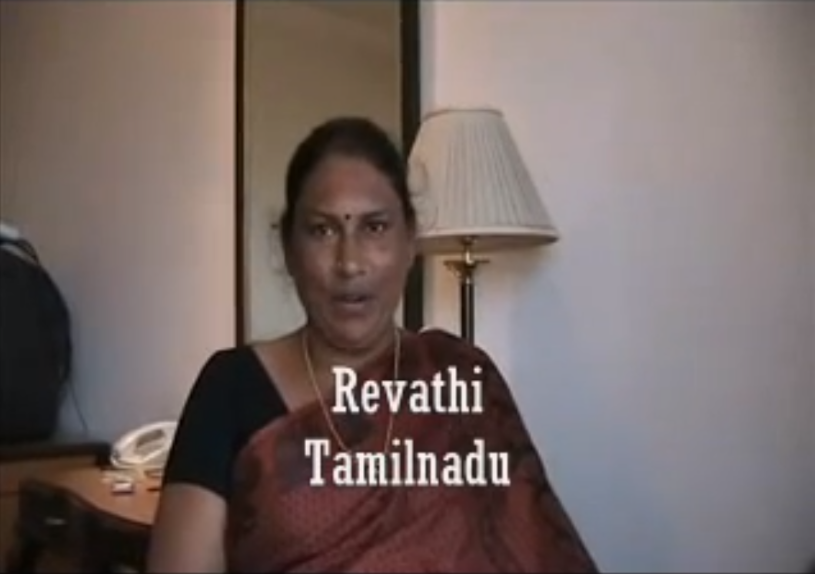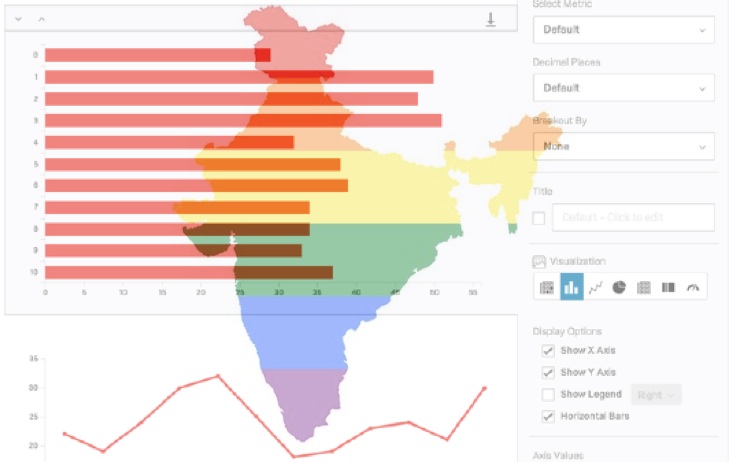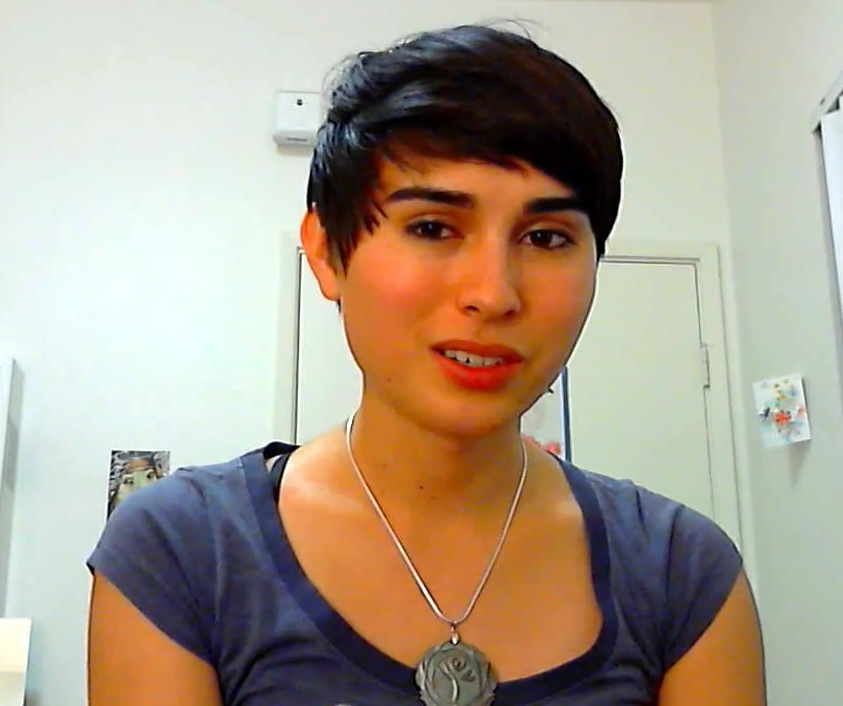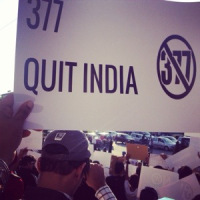Supreme Court hearings on Naz: Mar 13-14-15, 2012
Apologies for not posting reports about the last three days hearings on the 377 case in the Supreme Court. (The case is heard on Tuesday, Wednesday, Thursday). Ironically this is because, for the first time, I’ve been in court myself, rather than receiving reports from others who have been in court, and just editing them a bit and sending them on.
And I can tell you taking notes is not easy! The courtrooms the case is being heard in (numbers 5 and 6) are not large, so although there is provision for microphones they are not used. The lawyers and judges who are quite close to each other can hear each other easily, but from where the non-legal people in court have to sit, right at the back, it is not that easy to hear and make notes. (There is no other provision for recording the proceedings).
So when some of the lawyers speak rapidly, especially when they are reading out from cases, its almost impossible keeping track of them. A lot of the dialogue is about legal points, with references to judgments, digests of cases in the SCI and other courts abroad, and this is really hard to keep track of, and it makes me appreciate the efforts of the people who have been taking notes all the more.
The other problem is that there has been so much. These last three days have been almost entirely devoted, from 10.30 in the mornings till around 3.30-4 in the afternoons to the case, which means reams and reams of notes. I brought new notebooks to court, would run out of them and have to turn them around and continue scribbling behind! Its going to take some time to sort out all these notes, compare with the other person taking notes, and be able to give what would still be only a partial and broadly indicative idea of what was being said.
The other problem is that these have been really up and down days, so one has to deal with one’s own emotions and reactions! From the reports I’ve sent out earlier, you can see that the judges were quite hard on some of the petitioners, asking for clarifications and probing for inconsistencies. But now that our side is being heard, they have been equally probing on us.
Sometimes their questions seem to show an understanding of our arguments, but then the very next question can be really startlingly basic. It is hard not to wonder where their minds are going on this case, but at the end of these three days I can really only say I have no idea. Sometimes they seem positive, sometimes negative and most times you just have no idea. The way to look at it, I guess, is that the judges are doing their job and giving the Delhi High Court verdict a thorough scrutiny from all sides.
As I said, all these three days were devoted to our lawyers. First up was Fali Nariman, the counsel for the petition from the parents of LGBT children. Normally the first speaker would be the lawyer for the lead petition, which in this case is Anand Grover for Naz India, but Mr. Nariman is the most senior and respected counsel in the Supreme Court and when he took on this petition, pro bono, because he realised its importance, it was always clear he would be first to speak.
Mr. Nariman is the great constitutional lawyer of our times, and his arguments focused firmly on the constitutional aspects of the case. He looked at the way the law, which far predates the Indian Constitution, is an inconsistency to the progressive spirit of the Constitution. He also took head on an argument that has been made, that this Court should not be dealing with matters like this, but should leave it to Parliament. He argued that an overtly activist Court might pose problems, but at the same time there were legitimate reasons – and here, as with everything else he said, it was all grounded in many references to precedents and past judicial thinking – to take up cases where the injustive causes such shock to the Constitution that it was the Court’s duty to intervene.
After Mr. Nariman it was Mr.Grover’s turn and he spoke about the problems that the law causes for HIV/AIDS outreach work, which was why an organisation like Naz that was engaged in this field filed the petition. He looked at the development of the law from its first declaration in the Indian Penal Code, at which time its scope was perhaps quite narrow, but then how its scope was expanded via subsequent judgments to encompass nearly all kinds of mutually consensual sex for non-procreative purposes, and the problems this poses for all people of alternative sexuality.
Mr. Grover did come in for quite a bit of questioning here. The judges kept probing the link between gay men, the law and HIV and this was also the context in which, as has been reported in the papers, they kept asking for numbers of gay men, numbers of HIV postive people, number of HIV positive gay men, and so on. On one level this is a routine request, and yet as Mr. Grover tried to explain its a really hard figure to give precisely because the effect of the law is to drive the people who fall in these categories underground and beyond the reach of surveys.
Mr.Grover spoke till Wednesday afternoon and then handed on to Mr.Shyam Divan, the counsel for Voices Against 377, a coalition of human rights groups and individuals concerned with 377 who had come together to fight it. Mr.Divan started by reading through the list of the groups concerned, emphasising that they included groups concerned with child rights, to counter the claims of the Delhi Commission on Child Welfare, and also on womens rights, which emphasised that this was a broad based coalition, beyond just lgbt groups.
Mr.Divan continued through Thursday and will speak again when the case is taken up once more next Tuesday. I’ll just conclude this by giving an idea of one of the several dramatic and really moving moments in the hearings. It may sound excessively dramatic when you read it, but in the confined of the Court, towards the end of a long post lunch session, and framed, as all the counsel do, with much reading and citation from past cases, it really has impact.
In this case Mr.Divan was referring to the question one of the judges asked Mr.Malhotra, the Additional Solicitor General who made a misguided and entirely independent intervention against us at the start of the case. He also refers to a discussion during Mr.Grover’s arguments when the judges asked how one of their very basic questions, which was if the law forced gay people to be invisible they could claim to suffer discrimination, because didn’t you have to be visible to be discriminated against?
Mr.Divan: “Your Lordship asked Mr.Malhotra if he knew any gay people, and I would like to answer that question for myself. Yes, I do know gay people. I have known them since college. They are people in my immediate circle. They are part of my family and my extended family. And they have all feared at times if they have the freedom to express their sexuality. They have gone through trauma because of this.
“Are they invisible? Yes and no – and why no? Because our Constitution allows the flourishing of our personalities in relationships and it is at that point when gay people meet and cohabit and have a relationship that invisibility disappears. If a man lives openly with another man that is when the invisibility disappears and they can be discriminated against, despite the fact that our Constitution allows us all to develop relationships.
“It is all a question of identity and your Lordships have asked questions about identity. Who am I? It is a basic question that we ask ourselves, that we are asked by others and that the government asks on the passport form and the Aadhar application when it provides options of Male, Female and Other.”
The Bench: “Who am I is a very big question. We all ask ourselves all the time ‘Who am I?'”
Mr. Divan: “And that is the point my Lord. When I look at myself in the mirror each day and ask ‘Who am I?’ do I see a criminal?”





Who is he? – Gay. What does the society wants him to be? – A heterosexual. Society needs to mind its own business. Let him be what he is. He isn’t changing the way they are!